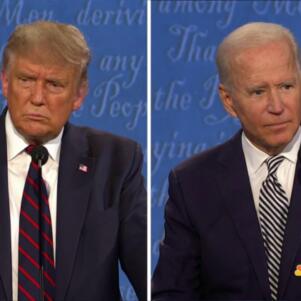The BLOG: Campaign 2016
What do Iowa caucus results mean for the 2016 election?
Sarah Jean Seman | February 8, 2016
Sen. Ted Cruz (R-Texas) and former Secretary of State Hillary Rodham Clinton dominated headlines this week as the winners of the Iowa caucus in their respective parties. But what do these victories really mean for the forthcoming presidential election?
As history would have it, not very much.
Previous winners of the Iowa caucus include Richard Gephardt, Tom Harkin, and more recently Mike Huckabee — none of whom advanced to be on their party’s ticket.
On the flip side, past losers in Iowa include Bill Clinton, George H.W. Bush and GOP Golden Boy Ronald Reagan.
Rather than being studied for its accuracy, all eyes turn to Iowa because – rather unintentionally – the state became the first to hold a caucus starting in 1972. The springboard for the change was the 1968 Democratic National Convention.
“That event,” according to the Brookings Institution, ”which nominated the incumbent vice president, Hubert Humphrey, for the presidency, occurred in the midst of intensifying anti-Vietnam War sentiment in the party, in the aftermath of the April assassination of the Reverend Martin Luther King Jr. and the June assassination of Senator Bobby Kennedy, and during clashes between protesters and Mayor Richard Daley’s Chicago police.
“Humphrey won the nomination without participating in any primaries, and instead, pursued the traditional campaign of working with party leaders and activists to win delegates through state party committees and conventions. Dissatisfaction with this outcome prompted liberals — mainly supporters of Eugene McCarthy and Bobby Kennedy — to call for reform of the nomination process.”
The result was the Commission on Party Structure and Delegate Selection and a flurry of rules and reforms which were implemented in the 1972 presidential election. Incidentally, due to the reforms, Iowa because the first state of the year to hold a Democratic caucus. Republicans additionally moved their opening caucus to Iowa in 1976.
Today, the media uses the Hawkeye State as a litmus test for how Americans will cast their ballots in quadrennial presidential elections. However, the caucuses have only had between a 43 percent and 55 percent success rate in predicting the Democratic and Republican presidential nominees, respectively.
What the 2016 caucus seems undoubtedly more helpful in doing, is sorting out the unlikely candidates.
Among the Republican runners, New Jersey Gov. Chris Christie, former Virginia Gov. Jim Gilmore, and former Pennsylvania Sen. Rick Santorum fell to the bottom; receiving no delegate votes. While amid the smaller Democratic pool, former Maryland Gov. Martin O’Malley walked away without delegate support.
In the aftermath of Iowa, the field of candidates has already winnowed. This week Santorum and O’Malley have bowed out, along with Sen. Rand Paul (R-Ky.) and former Gov. Mike Huckabee (R-Ark.).
Sarah Jean Seman is a freelance writer based in Washington, D.C.







